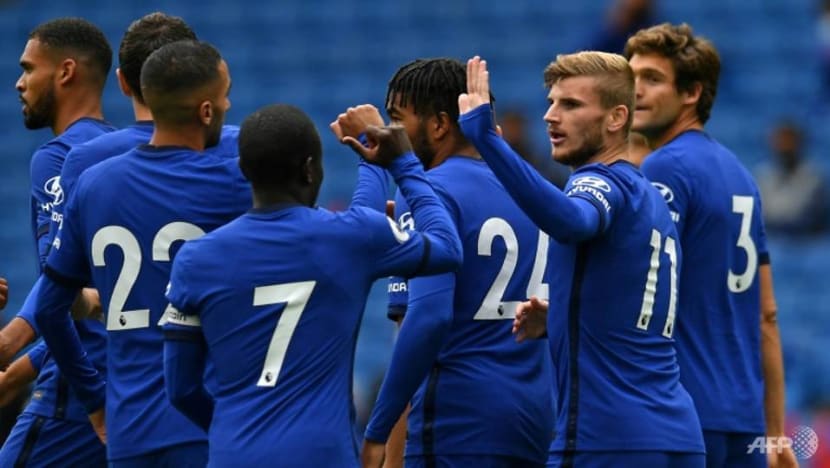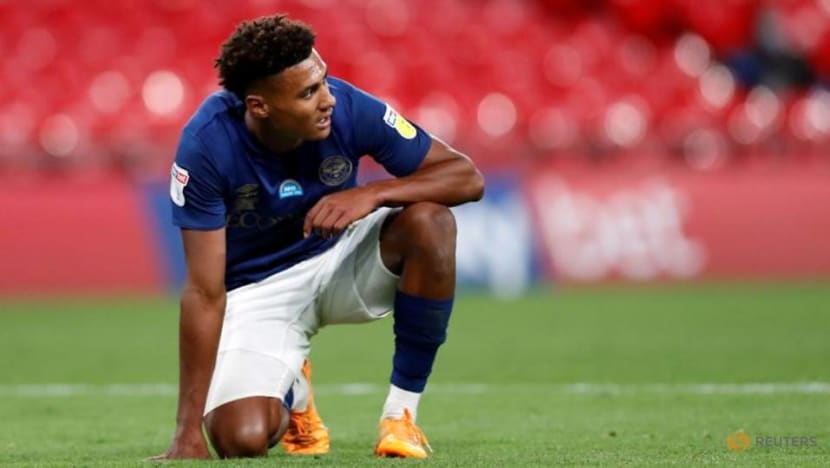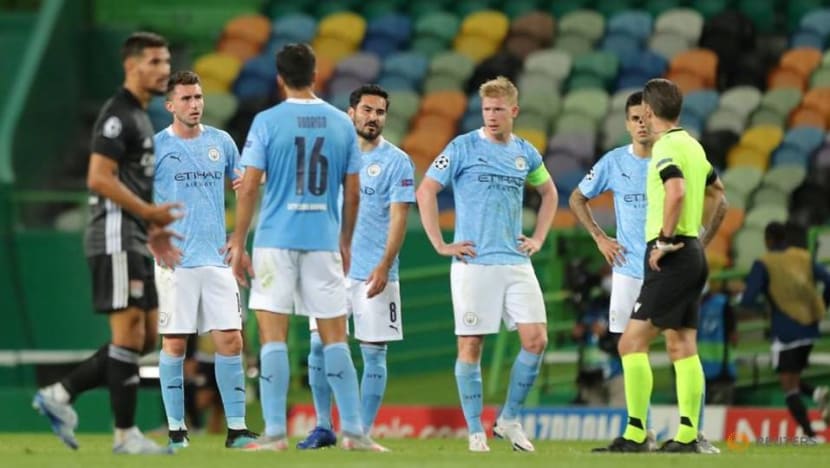commentary Commentary
Commentary: EPL clubs can't always count on expensive foreign players for success
For the overall health of English football, it would be beneficial if EPL clubs looked for value buys lower down the country’s extensive football pyramid, says John Duerden.

Timo Werner is part of Chelsea's £200 million spending spree on new players. (Photo: AFP/Glyn KIRK)
SINGAPORE: When the English Premier League (EPL) was launched in 1992, it was very much a British affair with Irish players, many of whom had been born in England, making up the main foreign contingent.
Only 13 players from outside the United Kingdom and Ireland were registered with 22 top-flight teams. How things have changed in less than 30 years.
At the start of the current season, there were 368 foreign players among the 20 teams, representing over 62 per cent of the 589 footballers in the EPL, according to the sport’s data site transfermarkt.com.
POOR FINANCIAL HEALTH
Chelsea have been the biggest-spending team in England this summer, splashing out more than 200 million pounds on six players, only one of whom is English.

READ: Commentary: Klopp will lead Liverpool to EPL glory again
The London team is something of an outlier however. There are three weeks remaining until this transfer window closes but signs are that spending is down in England’s top tier.
The COVID-19 outbreak means that clubs are playing in empty stadiums. The resultant lack of matchday and commercial revenues, coupled with a reduction in broadcasting income, has resulted in clubs looking to reduce spending and find greater value.
For the overall health of English football, it would be beneficial if some of that value was found lower down the country’s extensive football pyramid. If EPL teams are looking to reduce costs, many lower league clubs are struggling just to survive.
LOWER LEAGUES FEELING THE BRUNT
On Thursday (Sep 17), Macclesfield Town, who dropped down from the fourth tier to the fifth division at the end of last season, were wound up with debts of 500,000 pounds by England’s High Court.
The club followed in the footsteps of another team located close to the rich giants of Manchester City and United. Bury FC went into administration in 2019.
READ: Commentary: Are EPL broadcasting rights just too expensive for television now?
Wigan Athletic are also in danger. Administrators are searching for a buyer for the third tier club, which was relegated from the EPL in 2012.
“The pandemic certainly isn’t doing us any favours,” Paul Stanley, of corporate recovery specialists Begbies Traynor Stanley, told The Guardian. “Wigan are similar to Macclesfield in some ways, and Bury and Bolton for that matter.”

These teams find it hard to compete with the nearby big Manchester clubs - City and United – for fans and revenues, with the EPL clubs’ world-famous players and coaches drawing support away from nearby towns.
“Macclesfield have just been wound up but they could have been saved had an investor come along with as little as 150,000 pounds or so,” Traynor added. “The club could have been bought for that price, but evidently no one wanted it.”
SURVIVING ON TRANSFER REVENUES
Transfers used to be a valuable source of income for lower league teams but with the top teams increasingly looking overseas or at the EPL clubs, there are fewer opportunities for sales.
If there was a little more money in the lower leagues then it could not only give clubs a chance of survival but also the chance to invest in longer-term projects such as a credible academy that identifies and develops potential stars.
READ: Commentary: Messi and Ronaldo are the best ever. We will not see any more like them
Such a set-up would not only help the club create potentially lucrative revenue streams, it would inevitably also be good for the sport in the country.
Exeter City, a fan-owned team in the fourth tier, has invested in a youth academy which had already paid for itself even before the team sold Ollie Watkins to second-tier team Brentford at 1.8 million pounds in 2017.
On Sep 9, after three successful years, Brentford sold Watkins to top-tier team Aston Villa for around 28 million pounds. Exeter had inserted a 15 per cent sell-on clause on any future deal meaning they will receive a further amount of 4 million pounds from the deal.

That is similar to the average year’s revenue for the Devon club and greater than the expected revenue for this season.
"The academy has been a major part of that, it's something we have worked extremely hard at," said Exeter Chairman Julian Tagg.
"The temptation when we have had some good paydays and windfalls is to plough it straight back in immediately and we haven't done that. We've tried to be circumspect with the amounts that we put back in and the amounts that we hold back.”
Brentford, traditionally a small West London club that has spent most of its history in tiers three and four, also demonstrate there is value in the lower leagues, and have a model of their own.
“The key is being able to identify undervalued talent in the market, develop them, and then sell them on for profit, gradually building more value into the squad and gradually increasing the level of the squad,” Rasmus Ankersen, co-director of football at Brentford, said in January.
READ: Commentary: Peter Lim’s romance with owning a football club appears in trouble
It has worked. In the last five years, the club has generated around 150 million pounds in transfer sales while becoming one of the top teams in the Championship, finishing third last season and just missing out on automatic promotion to the top tier.
WHY EPL CLUBS SHOULD LOOK LOCAL
EPL clubs should follow Brentford in looking to the lower leagues and not just because it is a successful model but it would help all of English football.
Some may argue EPL clubs, which compete to qualify for the prestigious Champions League and UEFA Europa League and aim to win these tournaments by contesting against Europe’s best, need the best talent from around the globe and not just young talent from lower leagues.

However there are benefits for EPL clubs in the longer-term.
One, relegation is always a possibility for most EPL teams. A healthy second tier ensures relegated teams can play in a league of good standard and teams promoted can compete - this is an ideal situation replicated throughout the league structure.
READ: Commentary: Don't expect football clubs to splash big bucks this transfer window
READ: Commentary: There's good reason why football clubs shouldn't be allowed to spend excessively
Having over 100 professional teams means there is a greater pool of players. More youngsters can realistically follow a career in the game and there is more chance that talent is spotted at an early age ensuring it is not lost to the game.
Two, if this year has shown anything to football it is that even the richest and biggest clubs are not immune to financial shocks. The pandemic has eroded their financial muscle and buying power as most EPL clubs have been more muted in the transfer market than in recent years.
Clearly, the strategy of buying success through assembling expensive squads is unsustainable.
In this regard, it may be wise for EPL clubs to begin looking more seriously at talent within the lower leagues as a more financially sustainable option.
Already, there are calls for EPL clubs to do more including introducing a small levy on transfers to create a fund that could be distributed among needy clubs.
More radical solutions involve a draft system where top-tier teams are required to spend a certain amount of money on a lower league player every year or two.
It is unlikely this would be popular with Premier League teams but when the likes of Chelsea is spending more than 200 million pounds on players while Macclesfield could have been saved for 150,000 pounds then there is surely some leeway for action.
The long-term health of English football depends on it.
John Duerden has lived in Asia for 20 years and covers the region’s sporting scene. He is the author of three books including Lions & Tigers - The History of Football in Singapore and Malaysia (2017).















